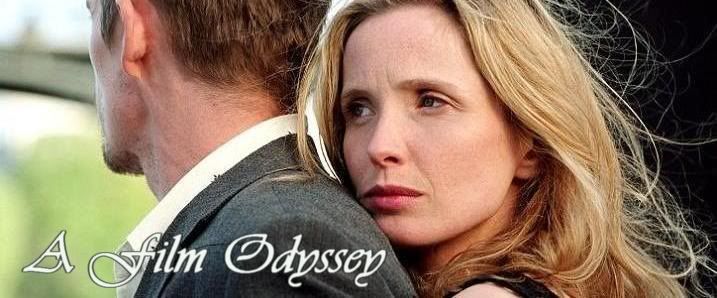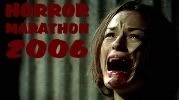Dead Ringers (1988)
 Dead Ringers’ aesthetic is as cold and sterile as the polished steel of the bizarre surgical tools its main characters – brilliant gynecologist identical twins – use on their less “typical” female patients. Like much of the director’s body of work, the film approaches its material with a somewhat detached perspective, as if assuming the role of an impartial observer. In true Cronenberg form, it explores the darker corners of the human experience, and by withholding judgment on the extremely bizarre and potentially off-putting behaviors and events abound, it allows an insightful and weighty emotional resonance to accrue, often developing silently beneath the film’s surface and only striking the unwary viewer when the progressing events have them at their most vulnerable. Upon initial viewing, even I, a seasoned Cronenberg fan, was doubtful of the film’s potential at first. By the conclusion, I was nearly on my knees in anguish.
Dead Ringers’ aesthetic is as cold and sterile as the polished steel of the bizarre surgical tools its main characters – brilliant gynecologist identical twins – use on their less “typical” female patients. Like much of the director’s body of work, the film approaches its material with a somewhat detached perspective, as if assuming the role of an impartial observer. In true Cronenberg form, it explores the darker corners of the human experience, and by withholding judgment on the extremely bizarre and potentially off-putting behaviors and events abound, it allows an insightful and weighty emotional resonance to accrue, often developing silently beneath the film’s surface and only striking the unwary viewer when the progressing events have them at their most vulnerable. Upon initial viewing, even I, a seasoned Cronenberg fan, was doubtful of the film’s potential at first. By the conclusion, I was nearly on my knees in anguish.Forget Crash’s Best Picture victory (the racially themed Paul Haggis fantasy, not the 1996 Cronenberg feature of the same name) – that Jeremy Irons was passed over for at least a Best Actor nomination for this film lies near or at the top of the list of most major fuck-ups by the Academy. In almost certainly the role(s) of his career, he turns in two equally nuance-laden and emotionally complex performances as Beverly and Elliot Mantle, said twins who, while different enough to be distinguished by the knowing onlooker, appear to the majority of the outside world as one being. This often works to their advantage both professionally and personally; they sometimes routinely share the same lovers, and cover for each other in midst of various work-related dilemmas. Sharing becomes so commonplace between them that, when one slips into the grips of a drug addiction (an “occupational hazard” for a doctor), the other inadvertently does the same whilst trying to curb his brother’s destructive habits. Although separate, their beings are so closely intertwined that the escalating instability of their lives drives the potential for tragedy to unexpectedly dangerous heights.
Unlike the tour de force makeup work in The Fly, the special effects employed here are most effecting in that they remain completely unseen. Finalizing the hypnotic dual performance from Irons into a single and often seamlessly interactive whole, they complete the illusion that provides for Dead Ringers’ most basic emotional foundation (credit is also due to Howard Shore’s understated, moving score, which brings to mind a sculptor working his clay into form). However, beyond the physical obstacle of presenting the same actor in two places at the same time (long before the days of CGI wizardry, kids), the film’s most powerful elements are those that find Cronenberg again wrestling with the enduring questions of what it means to be human in the midst of lost humanity; the sensual indulgences that have come to define his work are complicated here by the suggestion that these two brothers truly share the same soul. The many biological implications will surely be more affecting (and potentially disturbing) to woman than men, but the genuinely earnest nature of the existential probing rids the film of any potential traces of exploitation. Dead Ringers’ cumulative effect is so deeply disturbing and troubling because of how intimate and personal a work it is; ultimately, the tragic beauty that lies at the end of the road for these tormented soul(s) is practically transcendent.





